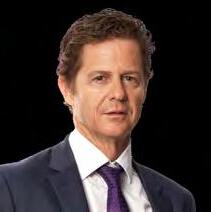
5 minute read
Taking Stock
But back to reality. Easy as it is to feel despondent about news headlines, the 12-month performance numbers have come through quite strongly, particularly in our Quality range, in which many clients are invested. Over the year to end March, the Ninety One Opportunity Fund returned close to 12%, beating peers by almost 7%. This is not far off the stellar 20-year track record of the Fund which generated a return of more than 13% per annum (8% per annum after inflation). 2
Interestingly, the FTSE/JSE All Share Index delivered 24% per annum over the 3 years to the end of March. However, this performance includes the post-Covid recovery but excludes the big drawdown during the pandemic crisis. Many investors, however, may have missed the uptick because they sold out when markets collapsed. Even including the Covid period, 5-year returns for SA equities are at a respectable 10.4% per annum, comfortably above cash.
Many investors, however, may have missed the uptick because they sold out when markets collapsed.
The big question then is where this money went instead. Household bank deposits are sitting at R1.63 trillion, mostly held for far longer than is appropriate for short-term cash investments. This means that investors are not maximising the return potential of their conservative cash holdings. Be sure to read Paul Hutchinson’s argument for an alternative to ‘lazy’ money, which along with the 12-month fee reduction we have introduced for the Ninety One Diversified Income Fund , should help you convince your clients to make their money work harder for them. 2. S ource: Morningstar, dates to 31 March 2023. Performance figures are calculated NAV-NAV, net of fees, in rands, A class. For more information, visit the Ninety One Opportunity Fund page on our website.
I want to conclude by reminding you that you should not lose sight of the investment value you add to your clients’ portfolios over time, especially during tough periods when returns are lower than expected. We conducted research to consider this contribution and tracked the value-add across two axes. Firstly, advisors must ensure that their clients invest according to their risk profile. Most investors have a lower risk tolerance than they should have, given their investment time horizon. The difference between a low-risk and a high-risk portfolio can vary anywhere between 4 and 6% per annum, so the quantum of relative out- or underperformance can be staggering over time. The second axis of value lies in the funds you choose for your client based on their risk profile, where again, fund performance can vary between 4 and 6% per annum. So as an advisor, you should be comforted by the fact that your value-add could be more than 8% a year for your clients, provided you have correctly analysed their risk profile and chosen the correct fund mix according to their risk profile.
In summary, do not underestimate how much you contribute to your clients’ happiness, either by making sure that their reality improves through the investment outcomes they receive or by correctly managing their expectations.
Happy investing!
Sangeeth Sewnath Deputy Managing Director
South Africa is not alone. The world is a tricky place at the moment.
In the US, there is the very real possibility that next year will see two octogenarians (one with an ever-growing list of legal challenges) fighting it out for a chance of a second term as president, in what must be one of the world’s most stressful jobs. And if one of them gets it, they will be in their mid-eighties when they finish their term.

This is, of course, good news, as it says something about the way we are ageing. We’re all going to live longer, so it makes sense that we work longer – even into our eighties. However, it is in stark contrast to the other side of the planet, where French protesters are burning down Paris because they refuse to move the retirement age from 62 to 64. This has to be implemented, otherwise their pension system is going to go broke.

A few hours from there the war in Ukraine rages on. Vladimir Putin hoped to announce victory at his annual May 9 victory parade last year, yet a year later the date passed again with a nervous unease hanging over both Moscow and Kiev. Also, increasingly uneasy are the Western taxpayers, and Putin knows this. What started as a good idea – to save Ukraine – was only meant to last a couple of weeks or months, but as we head into the second year, not all Western voices are singing in unison. Putin knows that the US, Europe and UK all have elections next year and many opposition parties are campaigning to cut spending support for Ukraine, so Putin is hanging in there, waiting for war fatigue to set in.
Many opposition parties are campaigning to cut spending support for Ukraine.
South Africa’s bizarre non-aligned neutrality on the subject has seen The Economist magazine shifting us from “neutral” to “Russia leaning”, and understandably so. They won’t be alone. Whether or not one likes the West is not the point. NATO countries are our biggest trading partners – they buy our goods, and that creates employment. Create jobs in South Africa and you solve a whole host of other problems like crime and poverty. Destroy jobs and you exacerbate all these problems.
On the subject of anti-West sentiment, there’s no doubt the BRICS group as we know it is going to expand in size. As interest in that group rises, so too does talk of de-dollarisation. While there is no doubt that one day an alternative currency to the dollar will gain traction, to call the death of the dollar now (or any time soon) is premature. Remain diversified, and if and when an alternative arises, you can gradually upweight, but don’t expect it any time soon.
To call the death of the dollar now (or any time soon) is premature.
South Africa is currently in the throes of massive job-shedding as a result of state capture-induced load-shedding. We therefore simply cannot afford the additional jobs carnage that will come our way if the Americans and the Europeans decide to cool towards us from a trade perspective.
So, as our country heads into what promises to be yet another ‘discontented’ winter there is some respite.
The world is recovering. Inflation has peaked. Interest rates should have peaked but haven’t (quite yet), and that will bring some relief to our economy and to our battered, oversold currency.
Global contagion seems unlikely.
In terms of the US banking crisis, and potential global contagion, while you can never say it’s impossible, it’s apparently unlikely. There seems to be general consensus amongst analysts that this is not 2008, that the authorities moved fast and effectively stemmed wider contagion.
On the electricity front, according to a “well-placed source within Eskom”, Business Day tells us that winter will be tougher. We use more heaters, and we need lights more hours in the day, so demand increases. While Eskom cuts back on maintenance during winter, the shortfall will be larger, and we will see more load-shedding.
Apparently, increased load-shedding doesn’t mean the grid is closer to collapse. The good news is that apparently there is a system operator somewhere in the bowels of the organisation whose job it is to ensure that the grid doesn’t collapse entirely.
You can rest comfortably because apparently our ‘system operator’ is world class, and so good in fact that we have apparently been coaching the Europeans on how to deal with large system deficits.
Hope that makes you sleep better at night.
Clyde Rossouw Co-Head of Quality

The fast view

Post the Global Financial Crisis, we experienced an era of cheap money, which distorted the cost of capital and favoured excessive risk-taking.
The return of persistent inflation has forced central banks to hike interest rates aggressively, bringing an end to ‘free money’.
M any businesses had positioned themselves for a low-rate environment and now that the tide has turned, some are ill-prepared for higher rates.
We are avoiding these businesses, rather investing in select high-quality healthcare and consumer, semiconductor, and leisure companies, amongst others.
Despite tough conditions, high-quality businesses with exceptional fundamentals should come into their own.





